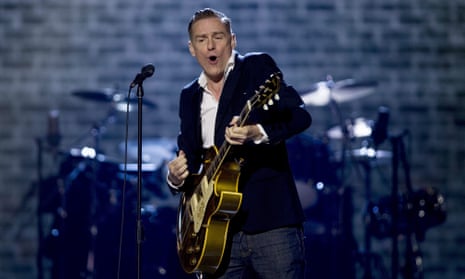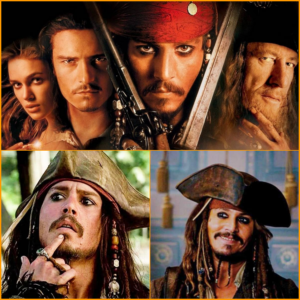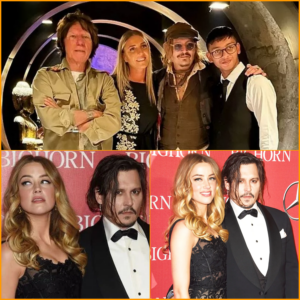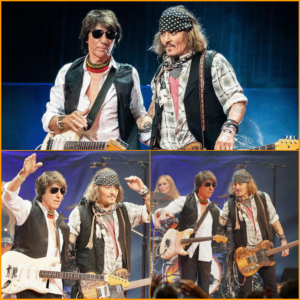After Bruce Springsteen opted out of a North Carolina gig, the Canadian musician has canceled his Thursday show in Biloxi. Will other artists follow suit?
Bryan Adams has canceled his Thursday performance in Biloxi, Mississippi, in protest over the state’s new law that allows religious groups and some private businesses to refuse service to gay couples.
Adams’s last-minute decision comes days after Bruce Springsteen and the E Street Band canceled a Sunday show in Greensboro, North Carolina, in a protest over that state’s new law blocking anti-discrimination rules for the LGBT community.
In a statement posted to his Instagram account on Sunday, Adams said he could not “in good conscience” perform in a state where “certain people are being denied their civil rights due to their sexual orientation”.
He added he found it “incomprehensible that LGBT citizens are being discriminated against”. “Hopefully Mississippi will right itself and I can come back and to perform to all of my many fans,” he said.

Bruce Springsteen pulls out of North Carolina concert over anti-LGBT law Read more
The Mississippi law, which Governor Phil Bryant signed on 5 April amid opposition from equal rights groups and businesses, will take effect on 1 July.
Supporters of the law known as HB1523 argue it offers protection for Christians who adhere to traditional views of marriage and gender roles.
Springsteen had canceled his show to signal his opposition to a new law which will compel public institutions to post signs designating that bathrooms and locker rooms are to be used only based on biological sex.
“Some things are more important than a rock show and this fight against prejudice and bigotry – which is happening as I write – is one of them,” Springsteen said in a statement.
“It is the strongest means I have for raising my voice in opposition to those who continue to push us backwards instead of forwards.”
On Monday a group of 95 Mississippi writers joined the protest, with luminaries including John Grisham and Donna Tartt urging state officials to repeal the law.
The writers said in an open letter released that House Bill 1523 had prompted hateful rhetoric that poisoned the political process.
They said the legislation was an example of Mississippi’s reactionary side but the state also had a humane side that treasured compassion.
“This core kindness, the embracing of wildness and weirdness, is what has nurtured the great literature that has come from our state,” said the letter, whose signatures include those of former US poet laureate Natasha Tretheway; National Book Award winner Jesmyn Ward; Pulitzer prize winner Donna Tartt; Grisham and Greg Iles, who write thrillers; and Kathryn Stockett, author of The Help.
Mississippi is one of about 10 states considering such measures after a US supreme court ruling last summer that effectively legalized same-sex marriage nationwide.
Adams’ and Springsteen’s actions have led to speculation about whether other artists scheduled to perform in Mississippi and North Carolina may follow their example.
Beyoncé, Justin Bieber, Pearl Jam and prominent LGBTQ activist Cyndi Lauper are all due to play in North Carolina soon.
None have yet released statements on whether they will choose to join Springsteen and Adams in protest, and their publicists did not respond to the Guardian.
Bands have frequently canceled concerts in regions where they feel a boycott could institute positive change and reform.
Last year, Roger Waters and Brian Eno joined a long line of artists refusing to play Israel, in protest as its occupation of Palestinian land.
Lauryn Hill canceled a concert in Israel last May, just three days before she was due to perform, following a social media campaign by activists who urged her to join the boycott.
Pixies, Gorillaz and Elvis Costello also canceled concerts there in 2010, though Pixies finally played the country in 2014.
The first emergence of an artists’ movement against the laws in the southern United States also has echoes of the anti-apartheid movement in South Africa.
In 1985, musicians including U2, Bonnie Raitt, Keith Richards and Bob Dylan led a cultural boycott against South Africa, vowing not to play concerts in the country while it was still under apartheid.
However, this did not stop all musicians touring there. Elton John, Rod Stewart and Queen were among those who played the country’s entertainment complex Sun City.
The South African boycott was organized by Springsteen’s guitarist Steven Van Zandt, who put together a compilation album including Miles Davis, Bob Dylan, Peter Gabriel, Run-DMC, and Lou Reed, and made an all-star protest single, Sun City.
Twenty-one years on, it was Van Zandt who defended Springsteen’s decision to boycott North Carolina at last Friday’s Rock and Roll Hall of Fame induction ceremony, saying: “It’s unfortunately the only way people understand. You have to hurt them economically in order to have them do the right thing morally, unfortunately.”
Comedian Joel McHale opted to show his support for the cause by vowing to donate “every single dime” he made for performing in North Carolina on Friday, to Durham’s LGBTQ center.
“There was a moment where I wasn’t going to come tonight,” McHale told his audience on Friday. “What the fuck is wrong with your government? It’s crazy! I know you guys are cool because your city council passed a resolution opposing that stupid fucking bill … So it was like, ‘Let’s go to that place where they support the destruction of that bill.’”
North Carolina’s governor, Pat McCrory, who signed the legislation on 23 March, has dismissed the backlash as “political correctness gone amok”, while Mark Walker, a Republican congressman for North Carolina, accused Springsteen of bullying tactics.
I hope you appreciated this article. Before you move on, I was hoping you would consider taking the step of supporting the Guardian’s journalism.
From Elon Musk to Rupert Murdoch, a small number of billionaire owners have a powerful hold on so much of the information that reaches the public about what’s happening in the world.
The Guardian is different. We have no billionaire owner or shareholders to consider. Our journalism is produced to serve the public interest – not profit motives.
And we avoid the trap that befalls much US media – the tendency, born of a desire to please all sides, to engage in false equivalence in the name of neutrality.
While fairness guides everything we do, we know there is a right and a wrong position in the fight against racism and for reproductive justice.
When we report on issues like the climate crisis, we’re not afraid to name who is responsible.
And as a global news organization, we’re able to provide a fresh, outsider perspective on US politics – one so often missing from the insular American media bubble.
Around the world, readers can access the Guardian’s paywall-free journalism because of our unique reader-supported model. That’s because of people like you.
Our readers keep us independent, beholden to no outside influence and accessible to everyone – whether they can afford to pay for news, or not.
News
What you didn’t know about Johnny Depp’s guitar skills.
Beyond the silver screen and the allure of Hollywood’s glitz and glamor lies a lesser-known facet of Johnny Depp’s life – his profound passion for playing the…
The subtle clues Johnny Depp gave us about AH’s true nature
Times Johnny Depp Tried To Warn Us Johnny Depp is a man who has had a very interesting life in ways that are both funny, and sad….
The controversial poster of pirates of the Caribbean 6 starring Johnny Depp
There is a new Pirates of the Caribbean 6 poster that has gone viral online with a movie title listed as Pirates of the Caribbean: Demons of the Corsair. The…
Johnny Depp celebrates Amber Heard victory with £50K Indian banquet
‘Once in a lifetime moment’ at the Varanasi in Broad Street, Birmingham Hollywood star Johnny Depp was joined by his musician friend Jeff Beck, 77, and around…
Johnny Depp’s ‘favourite’ curry house Varanasi about to open in Leicester
Johnny Depp who is reported to have said ‘it was the best curry he’s ever had!’ Varanasi, a popular Indian restaurant is expanding from it Birmingham branch,…
How Johnny Depp and Rod Stewart showed their love for animals with a song
Johnny Depp and Sir Rod Stewart joined forces over the weekend to raise money for an animal charity based in Lewisham. The duo performed at a private charity…
End of content
No more pages to load











